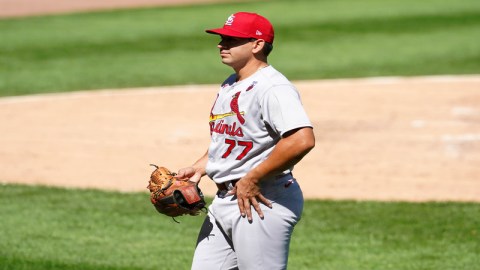Some of the best athletes in the world may have been duped into thinking a necklace can improve their performance.
The braided Phiten necklaces received a popularity boost during this year's MLB playoffs, but there is little evidence that the product actually has any physical effect.
According to the Kyoto-based company that makes the necklaces, the product speeds up muscle recovery and reduces fatigue by balancing the body's ions.
An article by Wired summarizes Phiten's explanation for creating the necklaces as follows: "The company creates its rope products by heating metals in high-pressure water until the deposit breaks apart. The water bath filled with small metal particles is then used to coat the fabric."
So while wearing the metals supposedly helps to balance the body's ions, the explanation makes little scientific sense. Muscle soreness is the result of the buildup of lactic acid and tiny tears in the muscle fibers, not an ionic imbalance. And while ions play a role in recovery, Phiten fails to prove how wearing a product can make a difference.
Gatorade is based on the science that when athletes lose ions from sweat, they need to be replaced, and the company has had their research backed up. However, Phiten only has one peer-reviewed study, which found that sprinters who wore aqua-titanium clothing (the materials that make the necklace) showed no improvement in recovery or performance.
Still, most athletes believe the necklace has an effect. Several members of the Texas Rangers wore the product during their World Series run, including reliever Derek Holland.
"It's a big muscle-relaxer," he told MLB.com. "To me, it all depends on the person. Each person's probably got a different thing. I know C.J. [Wilson] would say something about it being a muscle-relaxer as well."
Maybe the players know something that science has yet to discover. Or maybe the effects are just psychological. The placebo effect could make a noticeable difference if a player expects to feel better wearing the necklace.
But at $36 a pop, Phiten's necklace is a bit pricey for being unproven. Younger athletes looking to emulate the pros might be better off saving a few bucks and getting a lucky rabbit's foot instead.



